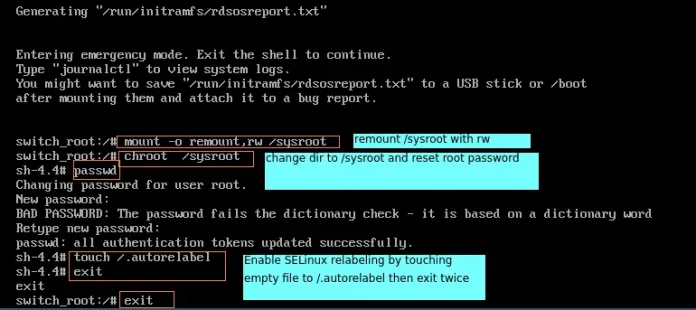Given two integer arrays P[] and Q[], where pi and qj for each 0 <= i < size(P) and 0 <= j < size(Q) represents the line equations x – y = -pi and x + y = qj respectively. The task is to find the number of pairs from P[] and Q[] having integer intersection points.
Examples:
Input: P[] = {1, 3, 2}, Q[] = {3, 0}
Output: 3
The pairs of lines (p, q) having integer intersection points are (1, 3), (2, 0) and (3, 3). Here p is the line parameter of P[] and q is the that of Q[].Input: P[] = {1, 4, 3, 2}, Q[] = {3, 6, 10, 11}
Output: 8
Approach:
- The problem can be solved easily by solving the two equations and analyzing the condition for integer intersection points.
- The two equations are x – y = -p and x + y = q.
- Solving for x and y we get, x = (q-p)/2 and y = (p+q)/2.
- It is clear that integer intersection point is possible if and only if p and q have same parity.
- Let p0 and p1 be the number of even and odd pi respectively.
- Similarly, q0 and q1 for the number of even and odd qi respectively.
- Therefore the required answers is p0 * q0 + p1 * q1.
Below is the implementation of the above approach:
C++
// C++ program to Number of pairs of lines// having integer intersection points#include <bits/stdc++.h>using namespace std;// Count number of pairs of lines// having integer intersection pointint countPairs(int* P, int* Q, int N, int M){ // Initialize arrays to store counts int A[2] = { 0 }, B[2] = { 0 }; // Count number of odd and even Pi for (int i = 0; i < N; i++) A[P[i] % 2]++; // Count number of odd and even Qi for (int i = 0; i < M; i++) B[Q[i] % 2]++; // Return the count of pairs return (A[0] * B[0] + A[1] * B[1]);}// Driver codeint main(){ int P[] = { 1, 3, 2 }, Q[] = { 3, 0 }; int N = sizeof(P) / sizeof(P[0]); int M = sizeof(Q) / sizeof(Q[0]); cout << countPairs(P, Q, N, M); return 0;} |
Java
// Java program to Number of pairs of lines// having integer intersection pointsclass GFG{// Count number of pairs of lines// having integer intersection pointstatic int countPairs(int []P, int []Q, int N, int M){ // Initialize arrays to store counts int []A = new int[2], B = new int[2]; // Count number of odd and even Pi for (int i = 0; i < N; i++) A[P[i] % 2]++; // Count number of odd and even Qi for (int i = 0; i < M; i++) B[Q[i] % 2]++; // Return the count of pairs return (A[0] * B[0] + A[1] * B[1]);}// Driver codepublic static void main(String[] args){ int []P = { 1, 3, 2 }; int []Q = { 3, 0 }; int N = P.length; int M = Q.length; System.out.print(countPairs(P, Q, N, M));}}// This code is contributed by Rajput-Ji |
Python3
# Python3 program to Number of pairs of lines# having eger ersection pos# Count number of pairs of lines# having eger ersection podef countPairs(P, Q, N, M): # Initialize arrays to store counts A = [0] * 2 B = [0] * 2 # Count number of odd and even Pi for i in range(N): A[P[i] % 2] += 1 # Count number of odd and even Qi for i in range(M): B[Q[i] % 2] += 1 # Return the count of pairs return (A[0] * B[0] + A[1] * B[1])# Driver codeP = [1, 3, 2]Q = [3, 0]N = len(P)M = len(Q)print(countPairs(P, Q, N, M))# This code is contributed by mohit kumar 29 |
C#
// C# program to Number of pairs of lines// having integer intersection pointsusing System;class GFG{ // Count number of pairs of lines // having integer intersection point static int countPairs(int []P, int []Q, int N, int M) { // Initialize arrays to store counts int []A = new int[2]; int []B = new int[2]; // Count number of odd and even Pi for (int i = 0; i < N; i++) A[P[i] % 2]++; // Count number of odd and even Qi for (int i = 0; i < M; i++) B[Q[i] % 2]++; // Return the count of pairs return (A[0] * B[0] + A[1] * B[1]); } // Driver code public static void Main() { int []P = { 1, 3, 2 }; int []Q = { 3, 0 }; int N = P.Length; int M = Q.Length; Console.Write(countPairs(P, Q, N, M)); }}// This code is contributed by AnkitRai01 |
Javascript
<script>// Javascript program to Number of // pairs of lines having integer // intersection points// Count number of pairs of lines// having integer intersection pointfunction countPairs(P, Q, N, M){ // Initialize arrays to store counts var A = [0, 0], B = [0, 0]; // Count number of odd and even Pi for(var i = 0; i < N; i++) A[P[i] % 2]++; // Count number of odd and even Qi for(var i = 0; i < M; i++) B[Q[i] % 2]++; // Return the count of pairs return(A[0] * B[0] + A[1] * B[1]);}// Driver codevar P = [ 1, 3, 2 ], Q = [ 3, 0 ];var N = P.length;var M = Q.length;document.write(countPairs(P, Q, N, M));// This code is contributed by rrrtnx</script> |
3
Time Complexity: O(P + Q)
Auxiliary Space: O(1)
Ready to dive in? Explore our Free Demo Content and join our DSA course, trusted by over 100,000 neveropen!




